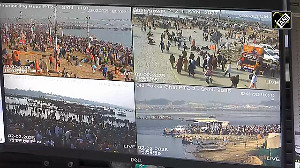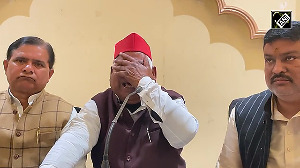Over 35 cadres of the Isack-Muivah and the Khaplang factions of the NSCN were killed on the night of February 24-25 on the Tirap-Myanmar border, intelligence reports reaching New Delhi said.
The IM faction lost 30 of its cadres in the fierce fighting when a 100-strong armed group, trying to enter Tirap from Myanmar's Sagiang division, were ambushed by the rival Khaplang faction. The Khaplang faction lost half a dozen of its fighters.
This was the largest clash in an ongoing conflict between the two groups since December. Both factions are currently in talks with the Centre and have been observing a ceasefire with government forces. The MHA, alarmed at the escalating conflict, wanted the Assam Rifles and the Army to launch an operation to disarm the NSCN cadres of both the factions but so far the Army has resisted the pressure, arguing that these are not banned groups and the clashes should be treated more as a law and order issue than pure insurgency.
Under the ceasefire agreements, the two factions of the NSCN are supposed to keep their cadres in designated camps and not allow them to freely roam across the north-eastern states carrying their arms. In practice, however, the writ of the former underground outfits runs large in major portions of Nagaland, Manipur and the Tirap and Changlang districts of Arunachal Pradesh.
The current clash in Tirap-Changlang is for the control of territory. The NSCN-IM, which has a strong presence in Mokokchung, Kohima, Zunebheto, Wokha and Dimapur districts of Nagaland and the Senapati and Ukhrul districts of Manipur, wanted to oust the Khaplang cadres from the two districts of Arunachal Pradesh which sit astride the India-Myanmar-China tri-junction.
The Khaplang faction, known to be propped up by the Indian security establishment as a counterpoise for the stronger IM faction, has repulsed the IM faction's assault so far.
The armed clash, however, created major problems for the ordinary citizens in those two districts. The Arunachal Pradesh government has asked the MHA to rein in the groups but so far the home ministry has been unable to find a way out. As a desperate measure, the state government may requisition the army for 'law and order' duties under the provision of 'in aid of civil authorities'.







 © 2025
© 2025